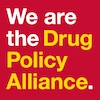Buenos Aires. August 29, 2016.
Bajate aquí el texto de la declaración en español
Click here to download the english version
Following everything presented, we recommend:
[1] See http://www.oas.org/documents/spa/press/Introduccion_e_Informe_Analitico.pdf
[2] Notably, some of the members of the Commission: Kofi Annan. President of the Kofi Annan Foundation and former Secretary General of the United Nations, Ghana; Louise Arbour. Former High Commissioner of the United Nations for human rights, Canadá; Pavel Bém. Former Mayor of Prague, Czech Republic; Richard Branson. Entrepreneur, activist for social causes, founder of the Virgin Group, co-founder of The Elders, United Kingdom; Fernando Henrique Cardoso. Ex-President of Brazil (Chair); Maria Cattaui. Former Secretary General of the International Chamber of Commerce, Switzerland; Ruth Dreifuss. Former Minister of Social Affairs and former President of Switzerland; Cesar Gaviria. Former President of Colombia; Asma Jahangir. Activist of human rights, former special coordinator of the UN on executions extrajudicial, summary or arbitrary, Pakistan; Michel Kazatchkine. Special Envoy of the Secretary General of the UN for HIV/AIDS in Eastern Europe and Central Asia,and former Executive Director of the Global Fund to fight AIDS, Tuberculosis and Malaria, France; Aleksander Kwasniewski. Former President of Poland; Ricardo Lagos. Former President of Chile; George Papandreou. Former Prime Minister of Greece; Jorge Sampaio. Expresidente de Portugal; George Shultz. Former Secretary of State, United States (Honorary Chair); Javier Solana. Former High Representative for Foreign and Security Policy for the European Union, Spain; Thorvald Stoltenberg.Former Minister of Foreign Affairs, High Commissioner of the UN refugee agency, Norway; Mario Vargas Llosa. Writer and public intellectual, Perú; Paul Volcker. Former President of the United States Federal Reserve and the Economic Recovery Advisory Board. United States; John Whitehead. Former Deputy Secretary of State, former co-Chairman of Goldman Sachs & Co., President and Founder of the 9/11 Monument and Museum, United States; Ernesto Zedillo. Former President of Mexico. See http://www.globalcommissionondrugs.org/
[3] See http://www.pensamientopenal.com.ar/miscelaneas/43030-informe-fiscalia-federal-ndeg6-respecto-delitos-drogas
[4] Preliminary study on the implementation of Law on Partial De-Federalization of Criminal Powers in Narcotics (law 26.052). 2014. Attorney General of Narcotics (PROCUNAR)
[5] Reference. Oporto Declaration. A group of judges from different counties gathered in Oporto, Portugal, signed the Declaración de Oporto which they designated "policies on drugs have proven to be a resounding failure, since they have not achieved the intended purposes of the decrease of the consumption of narcotic substances as they have not come to criminalize large criminal organization". Avaible at http://www.druglawreform.info/index.php?option=com_flexicontent&view=items&id=450:declaracion-de-oporto&Itemid=99
[6] Ver comparativo de proyectos en http://www.pensamientopenal.com.ar/doctrina/41992-comparativo-proyectos-ley-sobre-despenalizacion-delitos-consumo-drogas-argentina
[7]See at https://www.unodc.org/documents/ungass2016//Contributions/Civil/Informal_Scientific_Network_Statement/POST_SN_meeting_draft_FINAL.pdf
[8] United Nations High Commissioner for Human Rights. Study on the impact of the world drug problem on the enjoyment of human rights. Disponible en https://www.unodc.org/documents/ungass2016/Contributions/UN/OHCHR/A_HRC_30_65_E.pdf
[9] See http://www.cicad.oas.org/Main/Template.asp?File=/drogas/elinforme/default_spa.asp
[10] WHO, Consolidated Guidelines, p. 91.
[11] UNAIDS, The Gap Report, p. 183.
[12] Seehttp://www.unodc.org/documents/ungass2016//Contributions/UN/Gender_and_Drugs_-_UN_Women_Policy_Brief.pdf
[13]See http://www.unodc.org/documents/ungass2016//Contributions/UN/UN_University/UNU_Drug_Policy_Online_Final-10_11_2015.pdf
[14]See http://www.unodc.org/documents/ungass2016//Contributions/UN/UNDP/UNDP_paper_for_CND_March_2015.pdf
[15] See http://revista.pensamientopenal.com.ar/doctrina/42093-recomendacion-general-no-3-materia-discriminacion-consumidoresas-drogas-prohibidas
[16]See http://www.comunidadesegura.org.br/files/declaracion_comite_cientifico_argentina.pdf
[17] Among others, Philippe Bourgois. In Search of Respect. Buenos Aires. 21st Century. 2010. Cited in PROCUNAR 2014, “Estudio preliminar sobre la implementación de la ley de desfederalización…”.
[18] See http://apps.who.int/gb/ebwha/pdf_files/EB138/B138_11-sp.pdf
[19] “ Various economic analyses on psychoactive substances in Argentina”. SEDRONAR. 2011.
[20] They do not exist in the most recent studies.
[21] See RAND Corporation, study by C. Peter Rydell y Susan S. Everingham de 1995. Information extracted from the document “LAS DROGAS Y LA ARGENTINA: ENTRE LO RAZONABLE Y LO REALISTA”, disponible en http://cuestiondrogasargentina.tumblr.com/post/131090900792/las-drogas-y-la-argentina-entre-lo-razonable-y-lo
[22] See http://idpc.net/es/alerts/2016/06/el-tratamiento-obligatorio-no-es-un-medio-eficaz-para-reducir-el-uso-de-drogas-y-viola-derechos-humanos
[23] See recommendation IV/2014 of the system of Coordination and Monitoring of Judicial Control of the Prison Units, October 2014. Available at http://www.fiscales.gob.ar/violencia-institucional/wp-content/uploads/sites/7/2014/10/recomendaciu00F3n-salud.pdf
[24] Reference. Oporto Declaration.
[25] As in all the preliminary studies on the implementation of the Law of Partial De-Federalization of Criminal Power in Narcotics (N° 26.052). 2014. Attorney General of Narcotics.
[26] Reference. Women in Prison: The scope of punishment / Compiled by CELS, Ministry of Public Defense, National Funding for Prisons. - 1ª ed. - Buenos Aires: 21st Century Editors, 2011.
[27] Such decrease agrees with the proposals made by members RICARDO GIL LAVEDRA, MANUEL GARRIDO, ESTELA RAMONA GARNERO, RICARDO LUIS ALFONSIN, in the project No. 0981-D-2012, which takes up the presentation made in the year 2010 by the members ALFONSIN, ALBRIEU, CHEMES, FIAD and the Member STORANI. In the exhibition of reasons for the project, it mentions that the initiative proposes “the modification of article 5 of the law 23.737 in order to attenuate the minimum criminal standards that usually falls inequitably on the marginalized social sectors and distract efforts and human resources for the research of others behaviors which are more severely pursued (...)” “We cannot forget that the selectivity of our own penal system generates criminal consequences that fall almost exclusively on those sectors more vulnerable to these criminal organization, that usually become involved due to economic need. Setting a minimum of 4 years, prevents an imposition of conditional sentencing, the system loses the necessary flexibility to adjust the penalty in relation to the degree of guilt each subject has, and this picture suggests that the appropriateness of a minimum of 3 years is used to avoid situations of overcrowding and overpopulation and the imposition of sanctions that are in determined cases will manifest unjustly.” It fits to remember at the same time the LAW PROJECT OF REFORM, UPDATES AND INTEGRATES THE NATIONAL CRIMINAL CODE, establishing some of the crimes contained in article 5, a decrease to both the minimum of the criminal scale (from 4 to 3 years of prison0, and of the maximum (from 15 to 10 years). This is to safeguard the principle of criminal proportionality and the harmonization with the integrity of criminal reform proposed. Finally, the then Senator ANIBEL FERNANDEZ had established an aggravating factor for such crimes which “... correspond with the actions of a national or transnational organized crime group”, and a penalty “... of three (3) to ten (10) years in the remaining cases” (referenced Project Number 750-2012).
[28] See http://www.oas.org/documents/spa/press/informe_de_escenarios.pdf
[29] List of signatories: Agustín Colombo Sierra, Nicolás Comini, Enrique del Percio, Alberto Fohrig, Ernesto López, Juan López Chorne, Pablo Martínez, José Paradiso, Raúl Sánchez Antelo, Luis Tibiletti, Maria de la Paz Tibiletti, Juan Gabriel Tokatlian, José María Vásquez Ocampo, Luis Abad, Clara Abelenda, Victor Abramovich, Carlos Acuña, Juan Manuel Alessandro, Jorge Arias, Ariel Armony, León Carlos Arslanian, Luis Aznar, Rubén Bag, Celia Belmes, Marcelo Bergman, Jorge Bernetti, Maria del Carmen Bianchi, Alberto Binder, Hermes Binner, David Blaustein, Luis Blengino, Martin Bohmer, José O. Bordón, Sebastián borro, Rodolfo Brardinelli, Pablo Bulcourf, Mario Burkun, Nancy Calvo, Raquel Castronovo, Jazmín Castaño, Franco Castiglioni, Marcelo Ciaramella, Ana Clement, Roberto “Tito” Cossa, Gastón Chillier, Eduardo de la Serna, Khatchik Derghougassian, Daniel Díaz, Eduardo Dvorkin, Arnoldo Ederle, Eduardo Estévez, Arturo Fernández, María Belén Fernández, Santiago Fernandez, Jorge Flores, Enrique Font, Ricardo Foster, Rubén Furman, Mariano Fusero, Carlos Gabetta, Roberto Gargarella, Nilda Garré, Gustavo Gené, Mempo Giardinelli, Isidoro Gilbert, Aníbal Gutiérrez, Rodolfo Hamawi, Pablo Jacovkis, Ana Jaramillo, Eduardo Jozami, Mario Juliano, Gabriel Kessler, Fabián Lavallen, Germán Lodola, Alejandro López Acotto, Cristina López Meyer, Mario Lozano, Fortunato Mallimaci, Carlos Menasse, Juan L. Mérega, Carolina Mera, Manuel Mora y Araujo, Luis Moreno Ocampo, Alejandro Mosquera, Daniel Muchnik, Luis Osler, Vicente Palermo, Gustavo Palmieri, Hernán Patiño Mayer, Verónica Pérez Taffi, Luciana Pol, Natalia Porta López, Adriana Puiggrós, Ricardo Rabinovich, Brigida Renoldi, Carlos Resio, Jesús Rodríguez, Nicolás Rodríguez Games, Silvina Romano, Julieta Rostica, Julio Rudman, Marcelo Saín, Beatriz Sarlo, Pablo Schamber, Sylvia Schulein, Andrés Serbin, Andrei Serbin Pont, Germán Soprano, Hugo Spinelli, Pablo Stefanoni, Héctor Stupenengo, Miguel Talento, Luis Tonelli, Graciela Touze, Ignacio Vélez, Horacio Verbitsky, Pedro Villagra Delgado, Waldo Villalpando, Alejandro Villar, Marina Vitelli, Jorge Watts. Documento disponible en http://www.pensamientopenal.com.ar/system/files/2015/12/doctrina42665.pdf
[30] See http://www.pensamientopenal.com.ar/system/files/2016/02/doctrina42926_0.pdf
[31] Available at http://pensamientopenal.com.ar/miscelaneas/42983-jife-disponibilidad-sustancias-sometidas-fiscalizacion-internacional-garantizar
(*) We would like to thank Miranda E. Gottlieb for the translation and her support throughout the campaign. If you have questions, corrections, or comments on the translation, please contact Miranda at mirandaegottlieb@gmail.com
Bajate aquí el texto del resumen en español
Click here to download the executive summary
August 29, 1986, the Supreme Court of the Nation declared the unconstitutionality of the persecution of crimes for possession of narcotics for personal consumption. The cased about about the raiding of the home of guitarist Gustavo Bazterrica, member of the band Grandfathers of Nothing and musician Charly García, which occurred in 1981, whom the police seized a few grams of substances for personal consumption and which the lower courts had sentenced a prison sentence and fine.
The Supreme Court held that the sentence should be invalid, since the persecution of the crime for possession of narcotics for personal consumption was in violation of article 19 of the Constitution, in so far as it violates personal freedom, exempt from the authority of State entities.
Despite the forcefulness of the ruling, the country sustained identical criminalization in the legislative reform of 1989 (Law 23.737), penalizing the crime of possession for personal consumption.
Twenty years later, the Corte returned to declare the unconstitutionality of the persecution of users with the law (ruling “Arriola” of 2009), returning to the precedent of “Bazterrica”.
Thirty years have passed since the highest court of the Republic has set the foundations of jurisprudence on respect for freedom, individual autonomy, privacy, and self-determination of people using prohibited substances. Three decades without that which would advance legislative reform that would clearly prevent unconstitutional persecution of drug users, preventing their criminalization and stigmatization, despite the presentation of scores of draft legislation before the National Congress with this framework.
The debate over drug policy has advanced in quality and contains more beyond the claim by the delayed decriminalization of behaviors related to consumption, addressing matters such as harm reduction, medicinal use of controlled substances, and strategic legalization and regulation, the humanitarian treatment for people who use drugs, the proportionality of penalties and alternatives to incarceration, among others.
The “Asociación Pensamiento Penal (APP)” has redacted a document titled “the Declaration of Argentine Judges, Prosecutors and Public Defenders for Drug Policy that respects Human Rights”, which has been signed by more than 260 from around the country. There it presents the reasons for which there are recommended new approaches that lead to drug policies which are more effective and humane.
Recommendations of the Declaration:
The so called “war on drugs” has produced more harm to society than that which it has sought to reduce. The public policies based in criminalization and repression, have proved to be a resounding failure in our country and worldwide, without reducing the consumption of narcotic substances or efficiently prosecuting organized crime, ensuring the right to health of people who use prohibited drugs, nor guaranteeing access to substances for those who need them for medicinal, therapeutic or palliative purposes for pain. In the words of former Secretary General of the Organization of American States (OAS-2013), José Miguel Insulza, “it takes questioning the policies in place until now, under the paradigm of penalization and criminalization, reducing further harm than what they produce”.
The statement analyzes each of the pending matters in drug policy, arriving with the following conclusion, that are proposed as recommendations:
We place this in the consideration of the public authorities and society at large the Declaration, understanding that a reform to the politics with an intersection of health and respect for personal liberty of the individuals who use prohibited substances,is an extended debt of our democracy.
(*) We would like to thank Miranda E. Gottlieb for the translation and her support throughout the campaign. If you have questions, corrections, or comments on the translation, please contact Miranda at mirandaegottlieb@gmail.com





























Fármakon. La Diaria - Uruguay/ 30 años es nada: excepto para 250 magistrados argentinos
Infobae / Argentina sin narcotráfico o más de lo mismo?
Clarín / Un juez penal, orgulloso de su hija que consume y cultiva marihuana
Buenos Aires Herald / 500 legal experts launch bid to reform drug policies
Página 12/ Cuando la Justicia penal mira hacia los derechos humanos
20 minutos - México/ Jueces argentinos proponen cambios en políticas contra narcotráfico
TV Pública / Fallo Bazterrica en Pura vida, cada día
Revista veintitres / Drogas con derechos
TV Pública - Noticias / Jueces y fiscales piden cambiar la política de drogas
Buenos Aires Herald / Legal minds demand new drugs policy respectful of human rights
Radio del Plata / Sergio Wischñevsky: "Aniversario del fallo Bazterrica"
El diario de Madryn/ La desfederalización en materia de de drogas ha fracasado
Radio Border / Narcotráfico: cuando la prohibición no es la solución
Diario Río Negro/ Drogas: espejitos de colores o realismo?
DoctorRock FM / Entrevista a Mario Juliano
Diario Registrado / Magistrados reclaman una política de drogas respetuosa de los Derechos Humanos
Cosecha Roja / El plan Narcotráfico Cero: cómo fracasar desde el principio
Radio Metro / #a30añosdeBazterrica en Radio Metro - Juan Pablo Varsky
FM Blue / Ahora es cuando. #a30añosdeBazterrica entrevista a Adrián Martín - Presidente de APP
Cosecha Roja / Histórico: 250 magistrados argentinos piden no criminalizar a usuarios de drogas
La 100 / Lalo Mir convocando a la Presentación de la Declaración de Magistrados #a30AñosdeBazterrica
Radionauta / Se cumplen 30 años del Caso Bazterrica
Diario El País - España / Seis de cada 10 presos federales de Argentina esperan una condena
Tiempo Judicial/ Lanzan una campaña contra la penalización de la tenencia de drogas
FM De la calle/ Por el fin de la guerra contra el narco
Radio Kermes / Reclaman aplicación de política de Drogas respetuosa de DDHH
Radio Futura /260 magistrados piden no criminalizar a los usuarios de drogas
29.AGO.2016 - 15.00 hs.
Salón Azul - Honorable Senado de la Nación